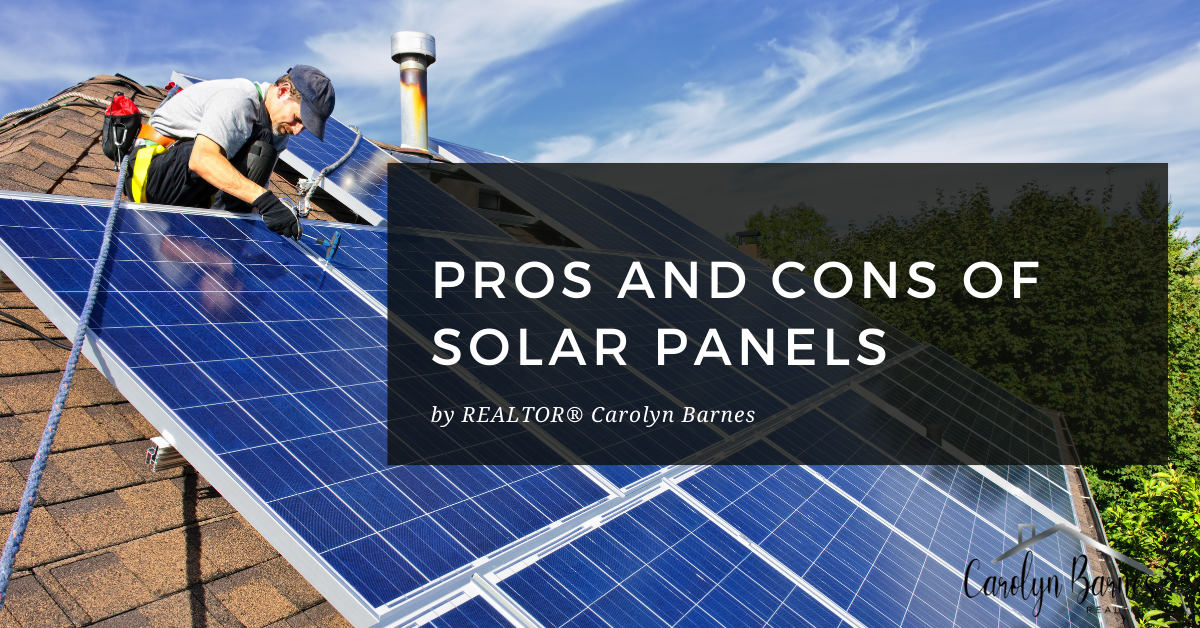|
If you're thinking of getting solar panels, you are probably considering them for two main reasons - reducing your carbon footprint and saving money on your energy bills. The solar industry certainly pushes these as the biggest reasons to "go solar." But the reality may not be that simple. Let's look at both the pros and cons of solar energy for homeowners. Read more to see advantages and disadvantages of solar energy.Pros:
Cons:
Harnessing the sun's energy sounds like a dream come true, and in some cases, it is! But investing in solar panels involves a careful balancing act between the environmental benefits, financial benefits, and practical considerations for your home. Understanding the nuances and potential challenges associated with solar power ensures that you make an informed decision that aligns with both your energy and financial goals.
For homeowners who want to make a long-term investment and plan to stay in their home for 20 or more years, solar panels may be a great idea. For others, it may not. I want to "go green" and slow climate change as much as anyone, but I have to consider how the manufacturing and disposing of solar panels impacts the environment as a whole. For now, the overall environmental impact, the high initial cost, the added holes in the roof, the lack of added property value, and the relatively short lifespan of solar panels has me holding off on jumping on the solar panel bandwagon. Will things change in the coming years? Yes, hopefully in the near future. Until the advantages of solar energy technology surpass the drawbacks, I'll recycle, repurpose, buy thrifted items, watch my water usage... and pay my electric bill. If you do decide to add solar panels to your home, make sure you choose a reputable solar company, research the best energy providers who will give you the best buyback plan, keep all your records, apply for your federal solar tax credit, pay for the panels outright or take out a loan (do not lease!), invest in batteries to store your energy, and stay on top of warranty end dates.
0 Comments
Leave a Reply. |
Archives
April 2024
Categories
All
Click the photo to claim your free Ultimate Guide to Katy, TX!
Carolyn Barnes, Your REALTOR® & Katy Expert |


 RSS Feed
RSS Feed




